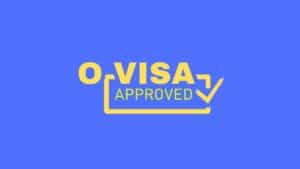Introduction
Are you among the few geniuses who are extraordinary in what you do? You will be astonished to know that you can travel to the US and even obtain a green card based on such extraordinary skills.
Yes! You read that right.
USCIS has provided individuals who possess exceptional caliber in the fields of science, arts, education, business, or athletics to apply for an employment-based first preference visa to enter the US.
This article will examine the latest questions asked about EB-1A visa.
What is an EB-1A visa?
The EB-1A visa is for immigrants who are exceptionally talented in a particular field. Individuals who possess “extraordinary abilities” in the areas of science, art, education, business, or athletics can apply for an EB-1A visa provided they fulfill specific criteria enumerated by the USCIS.
What are “extraordinary abilities?”
To get your visa approved by the USCIS, you have to demonstrate that you have extraordinary abilities in the given fields either by showing evidence of a lifetime achievement award ( Pulitzer, Oscar, or an Olympic Medal ) or by satisfying at least three criteria out of ten enumerated by the USCIS. The list of criteria can be found here.
How to file for an EB-1A visa?
The beneficiary under EB-1A can be the self-petitioner. You need to file Form I-140 for getting benefits under the EB-1A category. Once USCIS approves your I-140 petition, you can apply for a green card by filing Form I-485 to adjust your status.
How does EB-1A differ from an O-1 visa?
The most significant distinction between the two types of visas is the period of an alien’s stay in the United States. The O-1 visa only permits you to stay in the nation for a limited time, but the EB-1A visa provides you permanent residency in the US.
An EB-1A visa has far more stringent criteria than an O-1 green card. A beneficiary under EB-1A has to show plenty of pieces of evidence to prove that they are the best in their respective fields.
The EB-1A visa beneficiary can petition for themselves, while an O-1 beneficiary cannot petition for oneself. They require an employer to sponsor them for an O category visa.
Whether labor certification is required for an EB-1A visa?
EB-1A visa beneficiaries are exempted from the requirement of labor certification. They can file Form I-140 without the need for a labor certification.
Whether a job offer is required for an EB-1A visa?
EB-1A visa beneficiaries do not require any job offer or employment sponsorship under this classification. They are people of extraordinary abilities. Proving their extraordinary ability in science, art, education, business, or athletic is enough to apply under this category.
What are the documents required for an EB-1A visa?
The very first document you require is a filled Form I-140. You have to submit other documents to conform with the criteria requirements to prove your extraordinary ability. You can submit documents that will act as evidence for any of the following criteria:
– Evidence that you have received one-time achievement in the respective field you are applying for the visa. Nobel prize, Pulitzer, or Olympic medal are used to show evidence of one-time achievement.
– Evidence of published material about you in professional or major trade publications or other major media
– Evidence that you have been asked to judge the work of others, either individually or on a panel
– Evidence of your membership in associations in the field which demand outstanding achievement of their members
– Evidence that your work has been displayed at artistic exhibitions or showcases
– Evidence of your performance of a leading or critical role in distinguished organizations
– Evidence of your commercial successes in the performing arts
– Evidence that you command a high salary or other significantly high remuneration in relation to others in the field
– Evidence of receipt of lesser nationally or internationally recognized prizes or awards for excellence
– Evidence of your original scientific, scholarly, artistic, athletic, or business-related contributions of major significance to the field
– Evidence of your authorship of scholarly articles in professional or major trade publications or other major media
The petitioner needs to prove either a one-time achievement award received by him or fulfill three criteria out of ten prescribed by the USCIS and submit their documents along with the I-140 petition.
What will happen after you file for an EB-1A visa?
After you file an I-140 petition to the USCIS, you will receive a notice from the USCIS confirming that they have received your application. Then, USCIS will start processing your application. The further process will depend upon whether you are in the US or outside the US.
If you are in the US at the time your I-140 is approved, and your priority date is current, you can file Form I-485 to adjust your status to the USCIS. After the USCIS approves your Form I-485, you will attain lawful permanent residency or become a green card holder in the US.
If you are outside the US, the procedure will differ. After the USCIS has accepted your I-140 form, you must go through consular processing in your home country. That is, you have to appear for an interview at the US embassy or consulate nearest to your place of residence in your home country. If the presiding officer at the interview approves your visa application, you will be given a visa to enter the US and obtain your green card. Make sure to complete the online Form DS-260 – Immigrant Visa Electronic application before appearing for an interview.
What is the cost of an EB-1A visa?
If you are in the US, the cost of filing a Form I-140 is $700, while filing for adjustment of status will cost you between $750-$1,140 depending upon your age at the time of applying. The Biometric fee is $85 if the same is applicable in your case.
If you are outside the US, you have to go through consular processing. You have to complete an online form DS-260, which costs $325. The fee for Affidavit of Support is $120. As usual, Form I-140 will cost you $700, and if biometrics is applicable, that will cost you $85.
If you want to expedite your application process, you have to pay a premium processing fee costing you $2500.
Conclusion
I-140 petitions are the prevalent route for individuals possessing extraordinary abilities to obtain a green card in the US. You might be knowing enough about the EB-1A visa classification. If you are applying for an EB-1A visa, it is advisable to consult your immigration attorney to avoid any delays and rejections from USCIS. Our immigration attorneys are happy to help you. Make sure to consult before filing your visa application.








 by Prozco®
by Prozco®